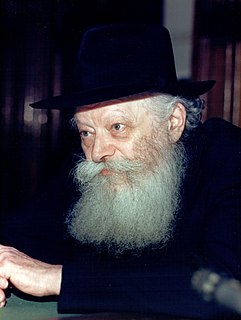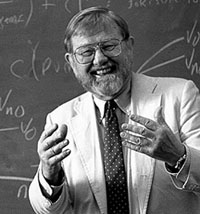Top 138 Pacifist Quotes & Sayings - Page 3
Explore popular Pacifist quotes.
Last updated on April 21, 2025.
When are we left-wingers going to learn that we are losing the cultural and political battle with conservatives because we are fractured into narcissistic special-interest groups? Why should an antiwar protestor be so concerned about her dietary identity? The political opinions of vegetarians and meat-eaters are, after all, equally important. And what does it tell us about vegetarians that it would never occur to meat-eaters to carry a sign that reads "Pacifist Pork Chop Lover for Peace" or "Backyard Rib Barbecuer for International Nuclear Disarmament"?
Talk of world peace is heard today only among the white peoples, and not among the much more numerous coloured races. This is a perilous state of affairs. When individual thinkers and idealists talk of peace, as they have done since time immemorial, the effect is negligible. But when whole peoples become pacifistic it is a symptom of senility. Strong and unspent races are not pacifistic. To adopt such a position is to abandon the future, for the pacifist ideal is a terminal condition that is contrary to the basic facts of existence. As long as man continues to evolve, there will be wars.
When people want to inspire you to turn against some group of people, they'll often use empathy. When Obama wanted to bomb Syria, he drew our attention to the victims of chemical warfare. And in both of the Iraq wars, politicians said, "Look at the horrific things that are happening." I'm not a pacifist. I think the suffering of innocent people can be a catalyst for moral action. But empathy puts too much weight on the scale in favor of war. Empathy can really lead to violence.
As to whether Marcos is gay: Marcos is gay in San Francisco, black in South Africa, an Asian in Europe, a Chicano in San Ysidro, an anarchist in Spain, a Palestinian in Israel, a Mayan Indian in the streets of San Cristobal, a Jew in Germany, a Gypsy in Poland, a Mohawk in Quebec, a pacifist in Bosnia, a single woman on the Metro at 10pm, a peasant without land, a gang member in the slums, an unemployed worker, an unhappy student and, of course, a Zapatista in the mountains.
One who loves must learn fear. One who fears must learn love. The thinker must do. The doer must think. The pacifist must fight, the fighter must find peace. If you flow as a river, burn as a fire. If you burn as a furnace, flow as a river. If you fly as a bird, sit firm as a rock. If you sit firmly, then fly as a bird. Be a fire that flows. A rock that flies. Love with fear and fear with love. For we are not fire, not water, not air, not rocks, not thoughts, not deeds, not fear, not love. We are G-dly beings.
I said, "OK, Ammon [Hennacy], I will try that." He said, "You came into the world armed to the teeth. With an arsenal of weapons, weapons of privilege, economic privilege, sexual privilege, racial privilege. You want to be a pacifist, you're not just going to have to give up guns, knives, clubs, hard, angry words, you are going to have lay down the weapons of privilege and go into the world completely disarmed."
If you take guns away from legal gun owners then the only people who would have guns would be the bad guys. Even a pacifist would get violent if someone were trying to kill him or her. You would fight for your life, whatever your beliefs. You'd use a rock or tear one of these chairs out of the floor. Hey, maybe I've been watching too many Bruce Willis movies!
It is ... necessary to whip up the population in support of foreign adventures. Usually the population is pacifist, just like they were during the First World War. The public sees no reason to get involved in foreign adventures, killing, and torture. So you have to whip them up. And to whip them up you have to frighten them.
Principles are what people have instead of God. To be a Christian means among other things to be willing if necessary to sacrifice even your highest principles for God's or your neighbour's sake the way a Christian pacifist must be willing to pick up a baseball bat if there's no other way to stop a man from savagely beating a child. Jesus didn't forgive his executioners on principle but because in some unimaginable way he was able to love them. 'Principle' is an even duller word than 'Religion'.
Jesus himself, and most of the message of the Gospels, is a message of service to the poor, a critique of the rich and the powerful, and a pacifist doctrine. And it remained that way, that's what Christianity was up... until Constantine. :Constantine shifted it so the cross, which was the symbol of persecution of somebody working for the poor, was put on the shield of the Roman Empire. It became the symbol for violence and oppression, and that's pretty much what the church has been until the present.
If I rule out violent anarchism, there remains pacifist, anti-nationalist, anti-capitalist, moral, and anti-democratic anarchism (i.e., that which is hostile to the falsified democracy of bourgeois states). There remains the anarchism which acts by means of persuasion, by the creation of small groups and networks, denouncing falsehood and oppression, aiming at a true overturning of authorities of all kinds as people at the bottom speak and organize themselves.
I like pacifists and people who have a heavy emotional identification with deathism and war would probably call me a pacifist, but I am a non-invasivist rather than a non-violentist. That is, I believe that an invaded people have the right to defend themselves by any means necessary. This includes putting ground glass or poison in the invaders' food, shooting at them from ambush, sabotage, the general strike, armed revolution, etc. It's up to the invaded to decide which of these techniques they will use. It's not up to some moralist to tell them which techniques are permissible.
Stop it," spluttered Eustace, "go away. Put that thing away. It's not safe. Stop it, I say. I'll tell Caspian. I'll have you muzzled and tied up." "Why do you not draw your own sword, poltroon!" cheeped the Mouse. "Draw and fight or I'll beat you black and blue with the flat." "I haven't got one," said Eustace. "I'm a pacifist. I don't believe in fighting." "Do I understand," said Reepicheep, withdrawing his sword for a moment and speaking very sternly, "that you do not intend to give me satisfaction?
There's this whole notion of being an Indian - the idea that "warrior" is a positive description of us [Indians as native Americans]. When an Indian guy does well, he's a warrior, even now. He could be a computer salesman, but if he does well, he's a warrior. I'm not a pacifist by any measure, but I'm also fully aware that the reasons I might go to war could be very dubious.
In the wars against Revolutionary and Napoleonic France, as in so many later conflicts, British women seem to have been no more markedly pacifist than men. Instead, and exactly like so many of their male countrymen, some women found ways of combining support for the national interest with a measure of self-promotion. By assisting the war effort, women demonstrated that their concerns were by no means confined to the domestic sphere. Under cover of a patriotism that was often genuine and profound, they carved out for themselves a real if precarious place in the public sphere.
Wicksell's old-fashioned liberalism is reminiscent of John Maynard Keynes' attitude toward conscription during World War I. Keynes opposed conscription, but he was not a pacifist. He opposed conscription because it deprived the citizen of the right to decide for himself whether or not to join in the fight. Keynes was exempt as a civil servant from conscription; so there is no need to question his sincerity. Apparently his belief in the rights of the individual against a majority of his compatriots was very strong indeed.
The necessary consequence of man's right to life is his right to self-defense. In a civilized society, force may be used only in retaliation and only against those who initiate its use. All the reasons which make the initiation of physical force an evil, make the retaliatory use of physical force a moral imperative. If some "pacifist" society renounced the retaliatory use of force, it would be left helplessly at the mercy of the first thug who decided to be immoral. Such a society would achieve the opposite of its intention: instead of abolishing evil, it would encourage and reward it.
I will not call myself a pacifist for the very simple reason that if something like a [Francisco] Franco should arise in Spain again, or, for that matter, in America, and tried to take away whatever dwindling civil liberties and human rights we retain, I would resist them with a club if I had to. But my admiration for pacifism as an outlook and a sensibility is enormous. I just find that it gets me into contradictions, as it often gets many pacifists into contradictory positions and strategies.















